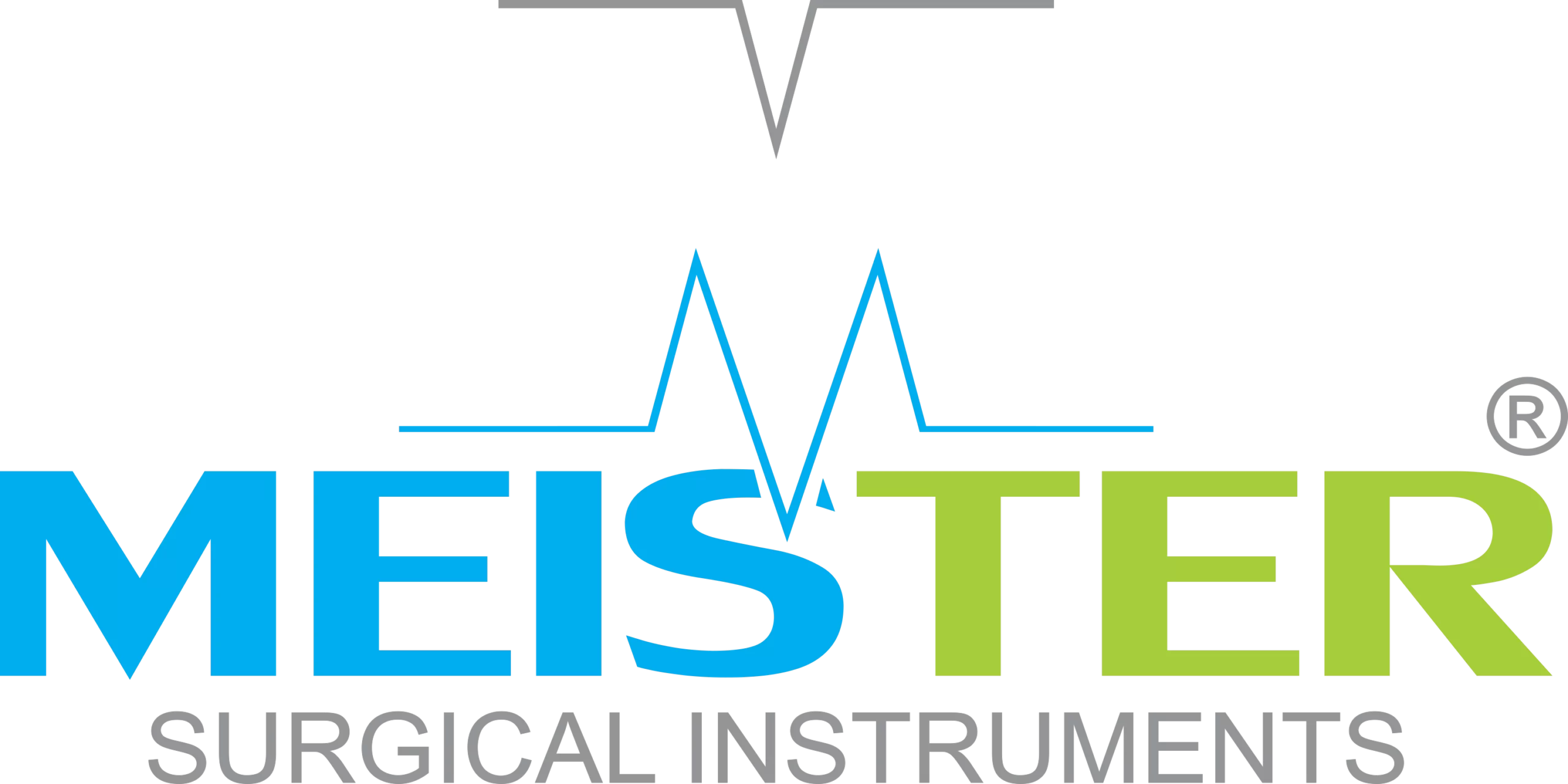Introduction
In the realm of surgical instruments, precision, control, and reliability are vital. Among the many tools that meet these criteria, Kelly clamps have become one of the most commonly used instruments in both minor and major surgeries. Known for their versatility and functionality, Kelly clamps play a critical role in achieving hemostasis and handling soft tissue during surgical procedures.
In this blog, we’ll define Kelly clamps, explain their applications, highlight their features, and show why healthcare professionals around the world trust Meister Surgical for premium-quality surgical tools.
What Are Kelly Clamps?
Kelly clamps, also known as Kelly hemostatic forceps, are surgical instruments designed to control bleeding by clamping blood vessels. They are also widely used to grasp, retract, or hold tissue and other materials during procedures. Named after Dr. Howard Atwood Kelly, one of the founding professors at Johns Hopkins Hospital, these forceps are fundamental instruments in nearly every surgical setting.
Kelly clamps are most often used during:
- General surgery
- Gynecological and obstetric procedures
- Cardiovascular surgery
- Emergency trauma care
- Veterinary surgery
Key Features of Kelly Clamps
Kelly clamps are known for their simple yet effective design. Their distinguishing features include:
- Straight or curved jaws: Available in both styles to suit specific surgical needs.
- Serrated inner jaws: Provide a firm, non-slip grip on blood vessels or tissues.
- Ratchet lock mechanism: Ensures secure clamping without continuous manual pressure.
- Blunt tips: Minimize tissue trauma during application.
- Stainless steel construction: Allows for repeated sterilization and long-term use.
Their design makes Kelly clamps ideal for clamping medium to large blood vessels and for general tissue manipulation.
Common Applications of Kelly Clamps
Kelly clamps are indispensable in many procedures due to their broad utility. Below are some common clinical applications:
1. Hemostasis
The primary use of Kelly clamps is to temporarily stop bleeding by clamping blood vessels during surgery or trauma management.
2. Tissue Handling
Surgeons use them to gently retract or hold soft tissues during dissection and suturing.
3. Foreign Body Removal
Emergency room physicians may use Kelly clamps to extract foreign objects from wounds or airways.
4. Suture Assistance
They can also be used to hold suture ends or to aid in knot tying during wound closure.
5. Clamping Tubes or Catheters
In some procedures, Kelly clamps are used to secure medical tubing or catheters temporarily.
Variations of Kelly Clamps
Depending on the surgical need, Kelly clamps come in different configurations:
| Type | Description | Use Case |
|---|---|---|
| Curved Kelly Clamp | Curved jaws allow for better access to deep tissues | Ideal in abdominal or pelvic surgeries |
| Straight Kelly Clamp | Straight jaws provide a direct grip | Commonly used in surface procedures |
| Baby Kelly Clamp | Smaller size for pediatric use or delicate procedures | Useful in plastic and micro-surgeries |
Kelly Clamps vs. Mosquito Forceps
While often confused, Kelly clamps and mosquito forceps differ in size and purpose:
| Feature | Kelly Clamps | Mosquito Forceps |
|---|---|---|
| Size | Medium to large | Small and fine |
| Use | Clamping larger vessels | Clamping small vessels or fine tissue |
| Jaw length | Longer and thicker | Shorter and narrower |
Choosing the appropriate instrument ensures precision and minimizes tissue trauma.
Meister Surgical: Your Trusted Source for Kelly Clamps
At Meister Surgical, we are committed to supplying healthcare professionals with top-quality Kelly clamps and other surgical instruments that meet international standards for performance and safety.
Our Kelly clamps are:
- Made from premium surgical-grade stainless steel
- Available in both curved and straight styles
- Offered in various sizes to suit different procedures
- Designed with ergonomic handles for better control
- ISO and CE-certified for global compliance
Our instruments are built to withstand the demands of repeated sterilization and daily clinical use, ensuring longevity and consistent performance.
👉 Browse our full line of surgical forceps and hemostatic tools at Meister Surgical or email us at info@meistersurgical.com for inquiries or bulk orders.
Maintenance and Sterilization of Kelly Clamps
To keep your Kelly clamps functioning at their best:
- Clean immediately after use to prevent blood and residue buildup.
- Sterilize in an autoclave following standard surgical protocols.
- Inspect regularly for signs of wear, rust, or misalignment.
- Sharpen or replace when serrations become dull or grip weakens.
Proper maintenance ensures not only the tool’s longevity but also patient safety during every use.
Innovations and Alternatives in Hemostatic Tools
While traditional Kelly clamps remain essential, modern surgical practices have introduced variations and alternatives, including:
- Disposable plastic hemostats for infection control in outpatient or emergency settings
- Tungsten carbide inserts for enhanced durability and grip strength
- Color-coded clamps for quick instrument identification in surgical trays
To stay updated with surgical tool advancements, refer to trusted medical platforms like the Association of Surgical Technologists (AST) for continuing education and instrument handling best practices.
Conclusion
Kelly clamps are foundational instruments in virtually every surgical setting, valued for their effectiveness, versatility, and durability. Whether used for controlling bleeding, handling tissues, or assisting in suturing, their reliability makes them a must-have for any operating room.
At Meister Surgical, we combine precision engineering with strict quality control to deliver surgical instruments that meet the highest clinical expectations. From general surgery to emergency care, our Kelly clamps are designed to support excellence in every procedure.
🔗 Explore our full collection at Meister Surgical or reach out to info@meistersurgical.com to find the perfect instruments for your practice.

